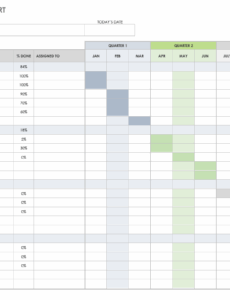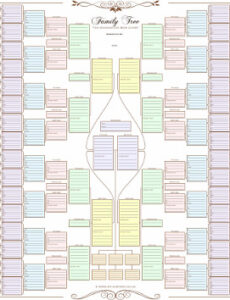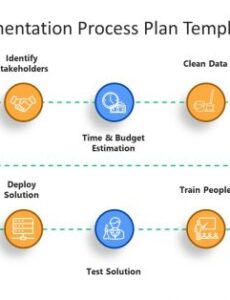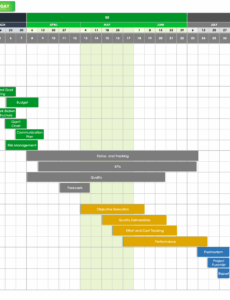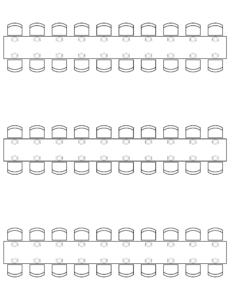In the contemporary business landscape, the ability to communicate financial proposals with clarity, precision, and professionalism is paramount. Effective financial documentation not only streamlines operations but also fortifies client relationships. A crucial element in this process involves building quotation templates, a foundational practice for any entity aiming to present its offers in a structured and compelling manner. These templates serve as a standardized framework for outlining services, products, costs, and terms, ensuring consistency and reducing potential ambiguities.
This meticulously crafted document is more than a mere price estimate; it represents a formal business offer, reflecting an organization’s commitment to transparency and professionalism. By providing a clear, itemized breakdown of costs and deliverables, the template establishes a basis for trust and mutual understanding between the service provider or vendor and the client. It aids in managing expectations, preventing misunderstandings, and facilitating quicker decision-making processes for all parties involved, proving indispensable for efficient commercial interactions.
The Imperative of Professional Documentation and Organized Planning
Professional documentation is not merely a formality; it is a strategic asset that underscores an organization’s credibility and operational maturity. An impeccably organized quotation form communicates a profound sense of reliability and attention to detail, which are critical components in securing new business and fostering enduring client loyalty. Such a professional layout ensures that all pertinent information is conveyed systematically, minimizing the need for follow-up inquiries and expediting the sales cycle.
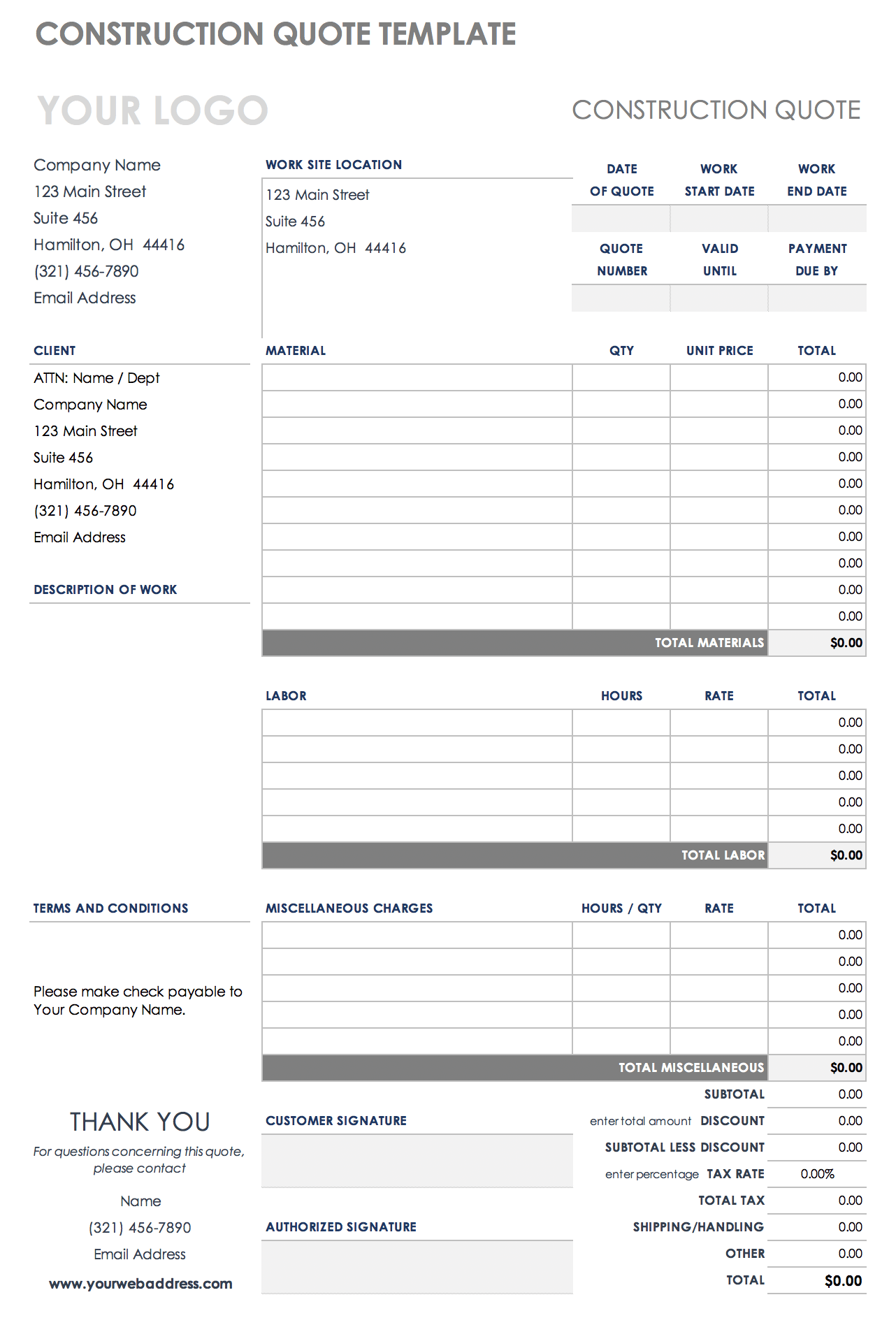
Beyond immediate client interactions, robust documentation plays a vital role in internal record keeping and compliance. A standardized business offer provides an incontrovertible record of agreed-upon terms, protecting both the service provider and the client from potential disputes. This level of organized planning contributes significantly to risk mitigation, ensuring that every transaction is thoroughly documented and readily auditable, thereby reinforcing the overall integrity of business operations.
Core Advantages of Structured Quotation Forms
The adoption of structured quotation forms offers a multitude of benefits that extend across various facets of business operations. Primarily, they enhance efficiency by reducing the time and effort required to generate individual price estimates. With pre-defined fields and sections, sales teams and service providers can rapidly populate templates with client-specific details, freeing up valuable resources for more strategic tasks.
Furthermore, these standardized sales documents ensure a consistent brand image and message across all client communications. Every quote sheet will adhere to the company’s established branding guidelines, presenting a unified and professional front. This consistency not only strengthens brand recognition but also instills confidence in prospective clients, signaling an organized and dependable operation. Structured templates also drastically minimize the potential for human error, ensuring accuracy in pricing, calculations, and terms, which is crucial for maintaining profitability and client satisfaction.
Versatility Across Industries: Adapting the Template
The inherent flexibility of a well-designed quotation template allows for its adaptation across a diverse range of industries and business models. Whether operating as a large corporation, a small business, a solo freelancer, or a retail establishment, the fundamental structure of a quotation can be tailored to meet specific needs. This adaptability is key to its universal utility, proving invaluable for generating a precise service estimate or a detailed product offering.
For service-based industries, the template can meticulously detail labor hours, material costs, project phases, and specific deliverables. Freelancers can customize the form to clearly articulate their rates, scope of work, and payment schedules, safeguarding their interests while providing transparency to clients. Retail businesses can use adapted versions for special orders, custom fabrications, or bulk purchases, ensuring every unique transaction is accurately documented with a formal business offer, irrespective of its complexity.
Optimal Scenarios for Employing Building Quotation Templates
Leveraging "building quotation templates" proves most effective in numerous specific business scenarios where clarity, speed, and professionalism are paramount. Their structured nature ensures that every necessary piece of information is included, thereby mitigating oversight and enhancing communication efficiency.
Examples of when utilizing building quotation templates is most effective include:
- Responding to Requests for Proposals (RFPs): When submitting bids for complex projects, a template ensures all requirements are addressed systematically and professionally.
- Onboarding New Clients: Providing a clear, upfront quotation helps establish trust and manage expectations from the outset, detailing the scope of work and associated costs.
- Presenting Project Proposals: For any project, large or small, a detailed quote sheet outlines the proposed solution, timelines, and financial commitment.
- Offering Customized Services or Products: When standard pricing doesn’t apply, a template allows for the precise breakdown of tailored solutions and their individual cost components.
- Renewing Contracts or Services: Templates can be adapted to present renewal terms, adjusted pricing, or expanded service packages in a clear and concise manner.
- Providing Pre-Sales Estimates: Before formal commitment, an initial service estimate can be quickly generated to give clients an idea of potential costs, speeding up the decision-making process.
- Documenting Change Orders: When project scope changes, a template can be used to formally quote additional work or revised terms, ensuring all parties are aligned.
This strategic deployment of the quotation significantly enhances the efficiency and professionalism of any business interaction, transforming a simple price estimate into a comprehensive sales document.
Design and Usability for Enhanced Engagement
The effectiveness of a quotation template extends beyond its content to its design and overall usability. A well-designed template is intuitive, easy to read, and visually appealing, encouraging client engagement and understanding. For print versions, clear typography, sufficient white space, and logical flow are essential, ensuring legibility and a professional appearance. For digital versions, responsiveness across devices, interactive fields, and a streamlined user experience are critical.
Consider incorporating elements such as your company logo, clear contact information, a unique quotation number for easy tracking, and a validity period for the offer. Itemized lists with clear descriptions, unit prices, quantities, and subtotals are crucial for transparency. A dedicated section for terms and conditions, payment schedules, and any disclaimers should be prominently featured. This attention to detail in the layout transforms the quotation into an effective sales tool that clearly communicates value and professionalism, reflecting positively on your business offer.
Conclusion: The Enduring Value of Structured Quotations
The strategic approach of building quotation templates is an indispensable practice for any organization committed to precision, efficiency, and professional communication. These meticulously structured business files transcend their basic function as mere price estimates, evolving into powerful tools for building client trust, streamlining sales processes, and maintaining robust financial records. By standardizing the way offers are presented, businesses can ensure consistency, reduce administrative overhead, and project an image of unwavering competence.
Ultimately, the investment in developing and utilizing comprehensive quotation templates yields significant returns in time saved, errors avoided, and relationships strengthened. They serve not just as a foundational element for transparent commercial interactions but also as a testament to an organization’s dedication to clarity and professionalism in every transaction. Embracing a systematic approach to your quotations is a fundamental step toward enhancing operational excellence and securing sustained business growth in a competitive marketplace.
